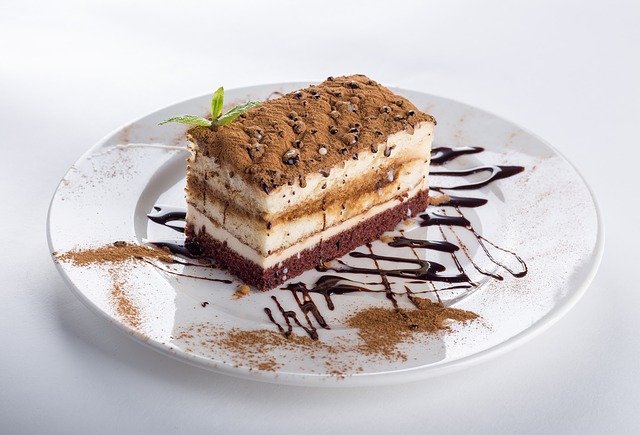The breasts embody femininity, motherhood and sexuality. Sensitive to hormones, they swell during the female cycle, change during pregnancy … These changes raise many questions. So here are the 10 things everyone should know about Breasts.
Summary
- Big breasts are no more worries
- Infection is possible, even outside breastfeeding
- At each consultation, the gynaecologist must palpate the breasts
- It is common to have sore breasts
- Breasts hate tobacco and alcohol
- The benefits of sport on the chest
- A doctor can refuse you a mammo
- Eating sweets is not good
- Only 5 to 10% of breast cancers are hereditary
- Self-examination of breasts is helpful
Whether you find your breasts too small, too heavy or drooping, how do you keep them healthy? There are many questions on internet forums. Here are some facts to help you get a clearer picture.
1. Big breasts are no more worries
Besides that it is not necessarily easy to assume them, especially in adolescence, large breasts require a lot of attention and, due to gravity, they collapse more.
“Breast enlargement is not gigantic, 300 g goes fast! We receive young girls who really have big breasts and who are very traumatized ”, testifies experts.
The monitoring of the breasts is the same regardless of their size.
2. Infection is possible, even outside breastfeeding
The breast is red, hot, painful, and you feel tired, with a little fever? It may be an infection. This is more common during breastfeeding because bacteria from the baby’s mouth can contaminate the breasts via a crack in the nipples. Young mothers are generally made aware of this. But the infection remains possible outside breastfeeding periods, especially in common jacuzzis. It must be quickly treated (with antibiotics more often) so as not to degenerate into an abscess.
3. At each consultation, the gynecologist must palpate the breasts
“A breast palpation which includes the breast area, the axillary hollows and the top of the collarbones, must be performed once a year”, underlines expert gynecologist and surgeon.
4. It is common to have sore breasts
There are many causes of breast pain. Before menopause, it is most often hormonal variations related to the menstrual cycle. “If the pain affects both breasts and disappears after menstruation, it’s rather reassuring,” say experts.
Other pains, and more surprisingly, have nothing to do with the breast . “The description is the same: I have breast pain (s), but they are caused by rheumatism between the ribs and the sternum, intercostal bone pain or damage to nerves that project to the breast . They often occur in a single breast. It must therefore be observed whether the pain is unilateral or bilateral, and punctuated by the cycle. In any case, if they persist, it is still better to discuss them with your doctor.
5. Breasts hate tobacco and alcohol
Smoking increases the risk of breast cancer by 16%, a figure that rises to 22% if you started smoking young before your first pregnancy. Even passive smoking has a small impact, however, since it increases the risk of illness by 10%.
As for alcohol, it increases the risk of breast cancer in a dose-dependent manner: the more you drink, the more the risk increases. “Weekend intoxication is surely to be avoided”, warns experts.
6. The benefits of sport on the chest
The breasts have no muscle, so working the pectoral does not promote good support. On the other hand, according to expert, exercise ensures better posture of the back, and reduces imbalance in the chest . In addition, sports reduce the risk of breast cancer.
7. A doctor can refuse you a mammo
However, it does not recommend mammograms before age 50 if no risk factor is identified: BRCA1 or 2 genetic mutation, family history of breast cancer before age 40 or in a man, explains expert. The doctor can therefore refuse to issue the prescription unless the palpation is difficult. “
8. Eating sweet is not good
We often read that eating Mediterranean and reducing fat reduce the risk of breast cancer.
“The problem is that there is not much demonstrated in the prevention of breast cancer, especially in terms of diet,” regrets expert. Let’s say you probably have to avoid sugary products. “
9. Only 5 to 10% of breast cancers are hereditary
And 70 to 80% of women who have breast cancer have no family history.
10. Self-examination of breasts is helpful
“There is no evidence that self-examination reduces mortality from breast cancer. However, as it is mainly women or their partner who find the balls in the breasts, I prefer that it is as soon as possible and I presume that this is the case if they feel the breasts, “says expert.
The right rhythm: Once a month, after menstruation (breasts are more flexible), if this does not generate stress.
The disadvantages: We can detect benign anomalies or areas of mastosis that will wrongly worry.
How to use: In front of a mirror, examine your breasts, arms alongside your body and then lifted. Palpate each breast and each armpit, then the areolas and nipples. Repeat the palpation in the lying position.
Signs to spot: A lump, swelling of part of a breast, unusual colouring, irritation or wrinkling of the skin, as well as redness, pain, retraction or discharge from the nipple.
4 Sources of Calcium outside Milk – For Lactose Intolerant
Anxiety: How to tell the difference with stress and anxiety
Eating better to maintain mental health



